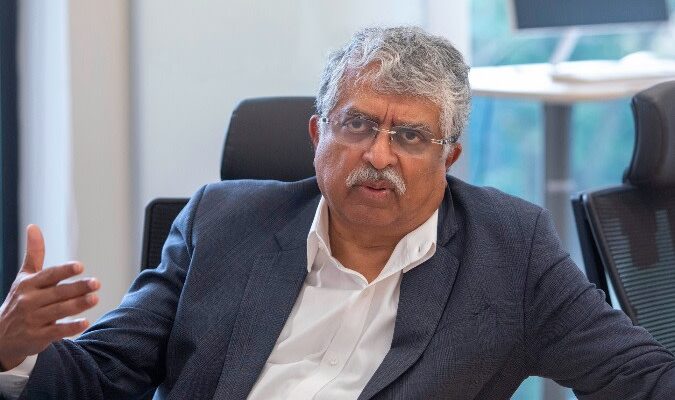Stay informed with free updates
Simply sign up to the Indian business & finance myFT Digest — delivered directly to your inbox.
Last week, as India’s Prime Minister Narendra Modi was preparing to board his plane to the UK to announce the countries’ new mangoes-to-motor-cars trade deal, his government put out a little-noticed press release: India’s UPI digital payments network was now processing real-time transactions at a rate of 640mn a day, overtaking Visa to become the world leader.
The network has rocketed in importance in India, thanks to the country’s vast population of 1.4bn and its enthusiastic embrace of digital finance.
Indian pride in UPI infrastructure — built by the state but leveraged by countless fintechs — contrasts starkly with the country’s other well-known infrastructure shortcomings: jammed, poor-quality roads; perennially half-built metro lines; painfully slow utility connections. Such issues are routinely cited by businesses as both a micro-frustration and a macro-problem, putting a brake on economic expansion, which hovers just above 6 per cent — high in a low-growth world, but not high enough to drive GDP per capita meaningfully beyond the current $2,900.
“The UPI model needs to be replicated in everything the state does,” says one former Modi adviser now in the private sector. “It’s about eliminating red tape and paperwork.” UPI has turned urban India — and large swaths of the country’s vast rural hinterland — into a more efficient, less cash-centric economy. Along the way it has boosted financial inclusion: 89 per cent of Indians now have a financial account of some kind, according to the World Bank, compared with just 35 per cent in 2011. Benefits and other government distributions can be made directly into people’s bank accounts with no “leakage” to corrupt intermediaries.
It has also allowed an exploding proportion of Indians to become active private investors. Sebi, the markets regulator, reckons more than 130mn people now have investment accounts, up nearly fivefold in the past five years, with the number expected to hit 400mn in the next five.
Despite a recent cooling-off in India’s stock market performance, strong growth over recent years, combined with smartphone investment technology, have driven a mass movement of savings out of bank deposits and property into stocks.
Much of that money has been invested via a mutual fund sector that has motivated investors with an acclaimed “mutual funds sahi hai” (“mutual funds are good”) marketing campaign. But there is also an army of individual traders who pick stocks for quick gains. And at the highest-risk end of the spectrum, many also bet on options following the advent of derivatives that can be bought and sold in one day. Volumes have fallen in recent months, market participants say, following a Sebi push to deter such speculation, but as of last year, Indian retail investors were estimated to account for close to a third of all global equity options trading with nine in 10 losing money.
Even if over-exuberance has burnt the highest risk-takers, India’s new band of retail investors is also a clear positive for the economy, sustaining a vibrant ecosystem of stock market expansion and initial public offerings. V Anantha Nagaschwaran, Modi’s chief economic adviser, said: “Private investors have definitely contributed to the health of the IPO market.”
Private investor Sips, or systematic investment plans, are now putting billions of dollars into IPOs every month, according to lawyers. As Goldman Sachs has pointed out India’s stock markets raised a record $70bn of equity finance last year (including $19bn in IPOs) — second only to the US.
The trade deal that Modi struck last week when he met UK Prime Minister Sir Keir Starmer was relatively thin — covering some agricultural exports, some automotive imports and a few other areas of economic mutual interest. The idea of collaborating on financial infrastructure might be fraught — UPI itself relies on a system of universal digital identity, the like of which previous UK governments have backed away from in the face of opposition from privacy campaigners. Sceptics may also point out that a developed market like the UK already has a wealth of digital finance offerings, even if they are fragmented.
But if Starmer and chancellor Rachel Reeves are serious about their stated mission of driving economic expansion through financial services reform and greater private investment, then taking a cue from something like UPI with all its attendant economic participation and growth benefits, would be rather more transformative than importing a few more mangoes.


